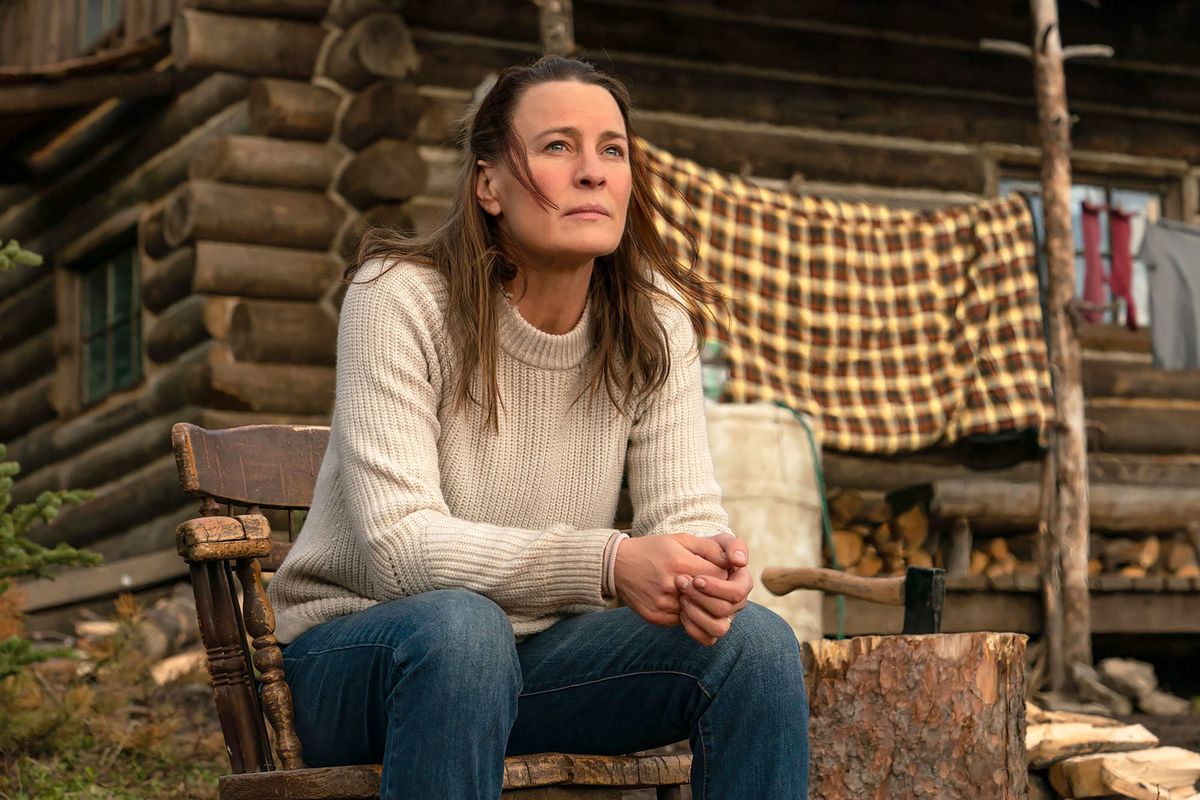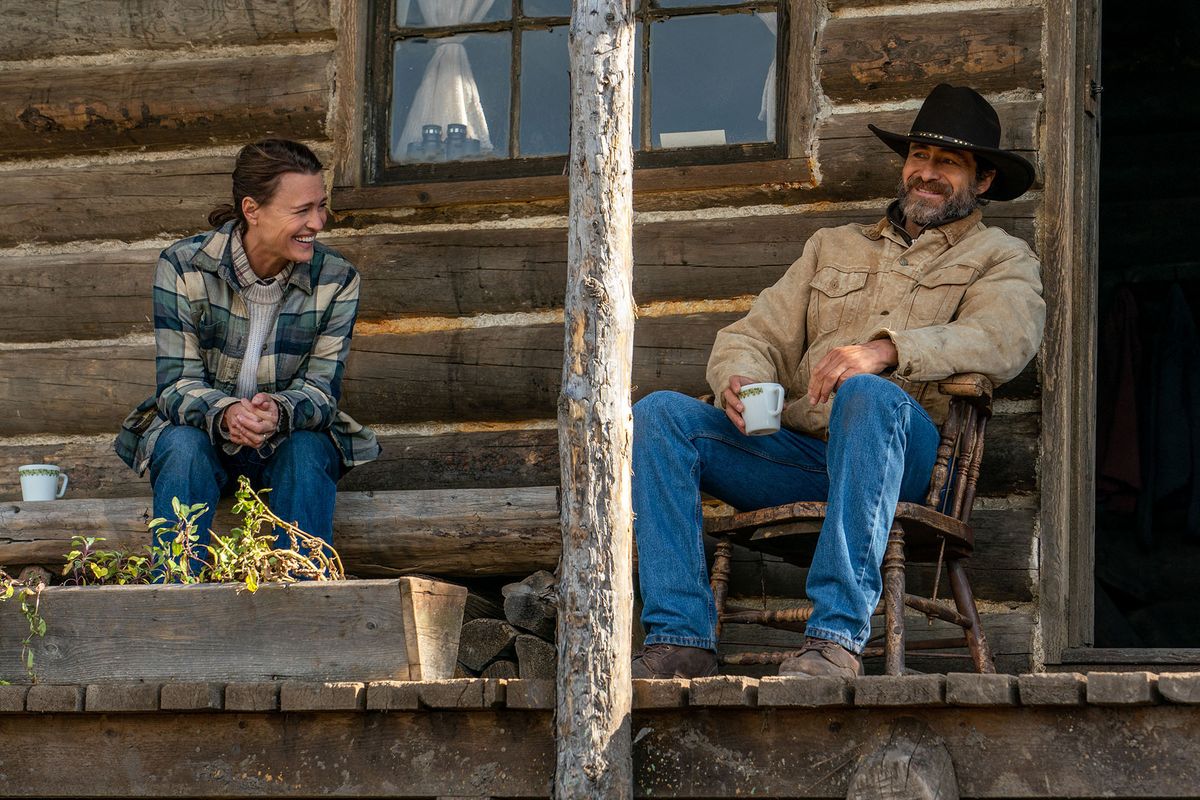Robin Wright makes a solid, if deceptively simple, directorial debut in ‘Land’
Robin Wright in “Land,” her feature directorial debut. (Daniel Power/Focus Features)
Actress Robin Wright began dipping her toes into directing with several episodes of “House of Cards,” the Netflix series in which she played a conniving political wife for several seasons. With her starring vehicle “Land,” the tale of a grieving woman who seeks solace – or perhaps a form of passive suicide – by going off-grid to live in a remote Wyoming cabin, she makes her solid, if only deceptively straightforward, feature debut.
For much of the film, it isn’t clear what, other than misery/misanthropy, has driven Edee (Wright) to ditch everything – cellphone, car, sister – and move into a rundown shack on the side of a mountain. Fifteen minutes or so into the story, there are hints that there was once a husband (Warren Christie) and a son (Finlay Wojtak-Hissong) who appear in the form of visions, hallucinations or perhaps simply memories. Before she takes off, Edee tells her therapist that she simply can’t face other people – people who invite her to share her pain or, worse, who just want her to be better.
Fair enough.
And in the lean but eloquent screenplay by Jesse Chatham and Eric Dignam, Edee initially reveals little other than a lack of preparedness for life in the wilderness that seems staggeringly naive.
(It that sense, the film contains echoes of “Into the Wild,” the 2007 film by Wright’s former husband, Sean Penn, or the recent film “The Dark Divide,” minus the comedy.) Perhaps her cluelessness is merely a measure of her staggering sorrow, but there’s also a suggestion that she doesn’t much care about survival.
When a hunter named Miguel (Demián Bichir) comes upon her half-dead, after her larder has been ransacked by a bear and her garden has gone bust, he notes that, “Only a person who has never been hungry would think that starving is a way to die.”
It’s said not without condescension, but only a whiff. For the most part, Miguel is a kind of saint – perhaps the kind who is atoning for something, as it turns out.
The setup is ripe for a story we’ve all seen before: one about a person in a self-destructive spiral of mourning who recovers only by the intercession of a kind and patient stranger who also knows something about loss. And yet there are corners of this quiet little film – less a plot-driven narrative than a two-person character study – that feel powerfully true.
As the film progresses, Miguel returns again and again to the mountain teaching Edee to trap, to hunt and sometimes just to listen to the silence between two people.
When Edee first asks Miguel why he decided to help her in the first place, he says, “You were in my path,” as if there were no other option. And maybe, “Land” suggests, with a simplicity that is almost profound, there isn’t. “The heart wants something to be kind to,” poet Laura Fargas once wrote, “even if only a fish to sprinkle crumbs on the water for once or twice a day.”

